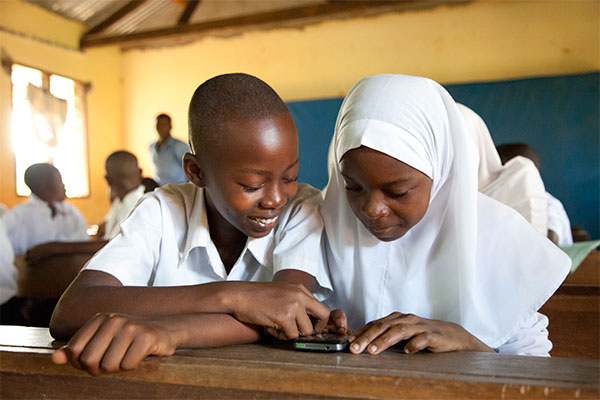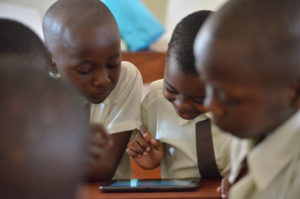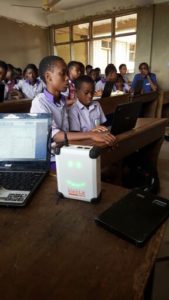Project Description
Integrating mobile technology and innovative learner-centered pedagogy
SMILE stands for Stanford Mobile Inquiry-Based Learning Environment. The SMILE Program leverages mobile technology to increase student engagement and achievement. The benefits of SMILE are universal, particularly in resource-poor areas around the world. Educational systems too often rely on teachers to come up with questions while students simply memorise and recall. SMILE provides an opportunity for a pedagogical shift where students actually do the work involved in creating questions.
The program is designed to push for higher order learning skills – applying, analysing, evaluating, and creating. Since SMILE can be used with learners of every age, the device can transform a conventional teacher-led classrooms into an active learning environment where students construct their own learning. SMILE is a unique inquiry maker, collaboration system, and assessment tool that provides a comprehensive learning experience for students and teachers.

SMILE workshop in action
Our SMILE Program is aimed at changing student-teacher interactions so that students are not just the center of their learning – but they are the active agents of it. With SMILE, the teacher is more of facilitator or “animator” in the learning process. Literally, the teacher brings learning to life. To sustain these efforts, Seeds of Empowerment works with educators in local communities to support and train them to use SMILE and mobile education applications in their classes. SMILE is well-suited for aiding in the learning process in some of the most remote and poverty stricken areas around the world, particularly for augmenting the impact of teachers where they are in scarcity. The shortage of trained teachers worldwide is anticipated to reach more than 2 million by 2015.

Students in South Africa generating, solving, evaluating, and discussing questions they generated.
What exactly does SMILE offer?
SMILE Program Students
- Develop comprehensive 21st century literacy skills
- Develop inquiry making, critical thinking, and analytical skills
- Advance their prior learning for deeper subject comprehension
- Understand what makes a good question
- Engage in self-directed learning
- Collaborate and compete on teams in highly interactive, gamification environment
- Develop presentation and discussion skills
- Assess and evaluate peers
SMILE Program Features
- Promotes inquiry-based, learner-centered pedagogical approach
- Motivates students to take more ownership of their learning
- Encourages peer-to-peer learning (in real-time)
- Helps teachers identify and address learning gaps (in real-time) to improve student learning
- Facilitates more responsive assessment and real-time evaluations capability
- Bridges technology gap
- Provides relevant content to learner’s practical experience
- Adaptable to different real contexts in real-time
- Cost-effective and offers high value return
- Reaches hardest to reach populations

A class in Ghana using a SMILE Box which contains the entire copy of Wikipedia, K-12 Digital Textbooks, Khan Academy Lite, 4 Coding Schools, Music Lab, Art Drawing Lab, Physics Simulation Lab, and 1001 Story Library.
Fore more information regarding SMILE and SMILE-PI, please visit http://smile-pi.org/

